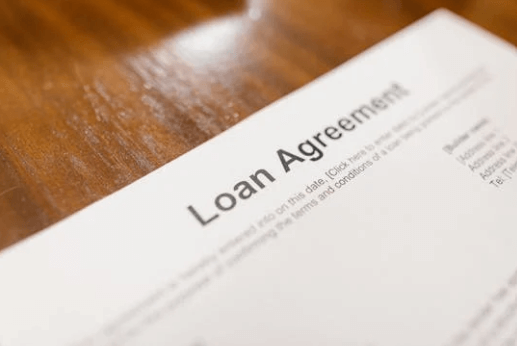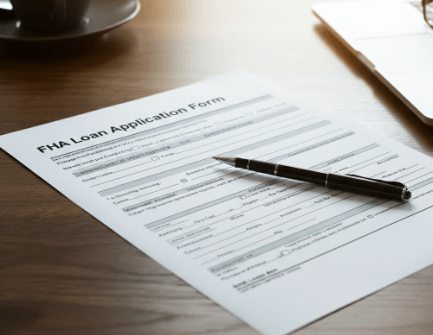Building a home on your land is a dream for many, but figuring out how to finance it can feel overwhelming. Did you know that construction loans typically have higher interest rates in the United States, with averages around 5%-6%, compared to traditional home loans? Understanding “How to get a loan to build a house on my land” is a key step toward making that dream a reality. To secure a loan, ensure you have key financial details on hand, including the value of your land, a comprehensive construction plan, and a strong credit score. If you’re unsure where to start, reach out to experts like Steve Daria and Joleigh, renowned real estate investors and land buyers for cash, who can guide you through the process or offer alternative solutions. They’ve helped countless individuals turn their property goals into achievements. Don’t hesitate to book a free discussion today to learn “How to get a loan to build a house on my land” or explore other viable options. Taking that first step can set you on the path to completing your dream home project!
Do I need to own the land outright to qualify for a construction loan?
Owning the land outright is not always a requirement to qualify for a construction loan, but it can simplify the process.
Lenders typically look at the equity you have in the land, which means they assess how much you owe on it compared to its current value.
If you own your land outright, it can serve as collateral for a loan, allowing you to secure more favorable terms—such as reduced interest rates or a lower down payment.

To reduce financial risk, lenders often demand larger down payments or impose stricter terms on individuals who do not fully own the land.
One option to consider is rolling any remaining balance on the land into the construction loan, creating one comprehensive loan.
Understanding “How to get a loan to build a house on my land” involves knowing how your land’s status influences the lender’s requirements.
It’s also important to ensure the land’s value meets the lender’s guidelines as part of the application process.
Preparing the right documents and working closely with your lender can help you secure the funding needed to build your dream home.
Get Started: Get Your Cash Offer Below…
We are direct land buyers. There are no commissions or fees and no obligation whatsoever. Start below by sharing where your property is and where we can send your offer…
What documents are usually needed to apply for a loan to build a house on my land?
Lenders usually ask for specific documents to assess your eligibility when applying for a loan to build a house on your land.
First, you will need proof of land ownership or documentation showing your financial stake in the land.
Lenders also require detailed construction plans, including blueprints and a cost estimate from a licensed builder or contractor.
Providing personal financial statements, such as income proof, bank statements, and tax returns, is essential for evaluating your ability to repay the loan.
A credit report will also typically be reviewed, so having a solid credit history is helpful.
Some lenders may ask for building permits or zoning approvals to ensure the project meets local regulations.
You might also need to provide information about any existing debts or liabilities.
Understanding “How to get a loan to build a house on my land” involves being well-prepared with these documents to streamline the application process.
Having everything organized will increase your chances of approval and help you begin construction sooner.
What types of construction loans are available for building a home?
- Construction-to-Permanent Loan: This loan finances the construction of your home and seamlessly transitions into a standard mortgage once the building is complete. It’s a convenient option because it eliminates the need for separate loans and extra closing costs.
- Stand-Alone Construction Loan: This short-term loan only finances the construction process. Once the home is built, you’ll need to apply for a separate mortgage to pay off the construction loan, making it ideal for those who want flexibility in lender options later.
- Renovation Loan: This is an excellent option for those looking to upgrade or expand an existing property, as it can cover both the purchase price and the cost of improvements. It’s great for projects like adding new rooms, upgrading kitchens, or remodeling homes.
- Owner-Builder Loan: Designed for people who want to act as their contractor and manage the construction process. These loans are more challenging to qualify for but can save money if you have experience in construction.
- FHA Construction Loan: This loan, backed by the Federal Housing Administration, is an ideal choice for first-time homebuyers or those with lower incomes. This loan merges the cost of land purchase and construction into a single package, offering a low down payment and flexible credit requirements for added accessibility.

Does the value of my land affect my loan approval or the amount?
The value of your land plays a crucial role in your loan approval and the amount you might qualify for.
Lenders often use the land as collateral, so they need to determine how much it’s worth if they need to recover their costs.
If your land has a high value, it can reduce the lender’s risk and may help you secure a larger loan or better terms like lower interest rates.
On the other hand, if the land’s value is low, it might limit how much you can borrow because the lender may not see enough equity in the property.
This is especially important when learning “How to get a loan to build a house on my land,” as knowing the land’s value is key to planning your budget.
Lenders also consider whether the land is fully owned or has a mortgage, affecting your overall financial position.
Preparing an appraisal or other documents to prove the land’s value can make the loan process smoother.
A higher land value can even reduce the down payment required, making it easier to start building your home.
What is the typical interest rate for a construction loan, and how is it determined?
- Understanding Your Credit Score: It is a key factor in determining the interest rates you are eligible for on loans and credit cards. A higher credit score shows lenders you’re a low-risk borrower, which can lead to lower rates and make it easier to learn “How to get a loan to build a house on my land” at favorable terms.
- Type of Loan: The type of construction loan you choose also influences the rate. For example, construction-to-permanent loans often have slightly higher rates during construction, while stand-alone construction loans may vary depending on the lender’s policy.
- Lender Policies: Each lender sets its policies for construction loan rates. Comparing lenders is important in understanding “How to get a loan to build a house on my land” that works best for your budget and situation.
- Market Conditions: Interest rates are often tied to the current economy and lending market. If rates are high across the board, construction loans will reflect those trends, but staying informed can help you time your application wisely.
- Loan-to-Value Ratio: Lenders factor in the ratio between your loan amount and the home and land value. A lower loan-to-value ratio usually comes with better interest rates and better options when figuring out how to get a loan to build a house on land that fits your needs.
What steps should I take to get a loan to build a house on my land?
You need to take several important steps to get a loan to build a house on your land.
First, assess your financial situation to determine your budget and how much you can afford to borrow.
Next, gather essential documents such as proof of land ownership, construction plans, and personal financial records.
Choosing the right lender is also key—look for one with terms that suit your needs and experience with construction loans.
Understanding the loan terms, like interest rates and repayment schedules, is equally important to ensure you’re prepared for the entire process.
Learning “How to get a loan to build a house on my land” means being well-organized and proactive in meeting lender requirements.
Additionally, an appraisal of your land’s value can help strengthen your loan application.
For expert guidance, reach out to Steve Daria and Joleigh, who are seasoned real estate investors and experienced land buyers for cash.
They can help you navigate the process and set you on the path to building your dream home. Contact them today to get started!
Takeaways
- Understand the Types of Loans Available: Different loan options exist for construction, such as construction-to-permanent or stand-alone construction loans. Knowing these options can help you pick one that matches your needs and financial goals.
- Prepare All Necessary Documents: Be ready with essential paperwork like proof of land ownership, construction plans, and financial statements. Having these organized upfront can make the application process smoother and faster.
- Evaluate Your Financial Readiness: Assess your budget and ensure you can afford the loan you’re applying for. Maintaining a strong credit score and manageable debt can significantly boost your chances of approval while also helping you secure a lower interest rate.
- Choose the Right Lender: Not all lenders specialize in construction loans, so finding one with experience is crucial. Compare different lenders to ensure you get competitive terms that align with your situation.
- Consider Seeking Expert Advice: Guidance from experts like real estate professionals or seasoned investors can be invaluable. They can help you avoid common pitfalls and ensure you’re on the right path to building your dream home.
**NOTICE: Please note that the content presented in this post is intended solely for informational and educational purposes. It should not be construed as legal or financial advice or relied upon as a replacement for consultation with a qualified attorney or CPA. For specific guidance on legal or financial matters, readers are encouraged to seek professional assistance from an attorney, CPA, or other appropriate professional regarding the subject matter.
